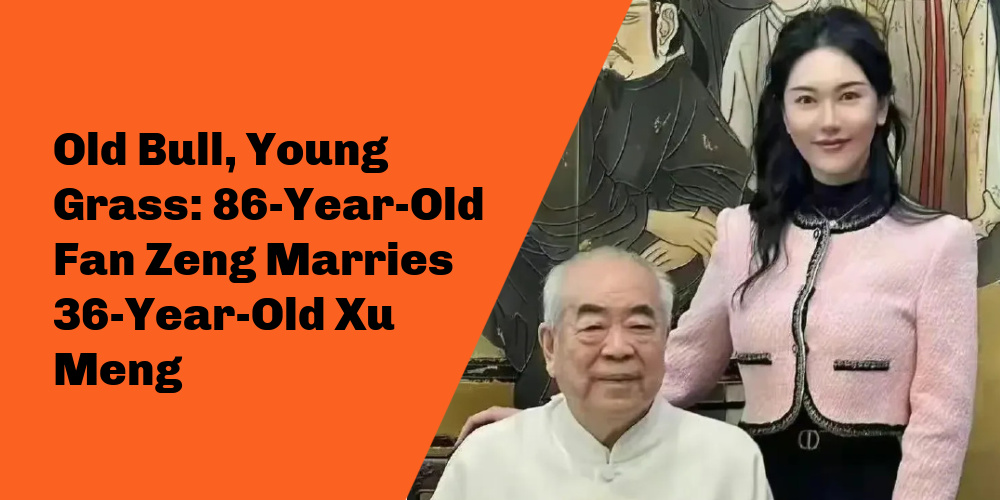Featured
Weibo Watch: The Battle for the Bottom Bed
“The battle for the lower bunk beds” (“下铺之争”) is a reflection of society and generational difference in China, touching upon expectations regarding the respect younger individuals should show the elderly.
Published
3 weeks agoon

PREMIUM NEWSLETTER | ISSUE #27
This week’s newsletter:
◼︎ 1. Editor’s Note – Battle for the Bottom Bed
◼︎ 2. What’s Been Trending – A closer look at the featured stories
◼︎ 3. What More to Know – Five bit-sized trends
◼︎ 4. What’s the Drama – Top TV to watch
◼︎ 5. What’s Noteworthy – Zara x Haidilao
◼︎ 6. What’s Popular – Martin Garrix x Huang Zitao
◼︎ 7. What’s Memorable – Social media in times of flood
◼︎ 8. Weibo Word of the Week – Coffin rooms
Dear Reader,
Sometime around last summer, a significant debate about train etiquette began trending on Chinese social media. Central to the discussion was a question that attracted over 190 million views on Weibo: Can passengers bring their own “bed curtains”?
The curtains in question (床帘 chuánglián, also 火车遮挡帘 huǒchē zhēdǎnglián) are often used in the cheapest class of sleeper cabins on Chinese trains, known as hard sleepers (硬卧 yìngwò). In these cabins, each compartment features six bunk beds, with three beds on each side separated by a small table. Only the bottom bunk offers sufficient space for seating and is also the most expensive among the three.

Example of Chinese hard sleeper train compartment, image via Sohu.
Train carriages usually comprise 11 semi-open compartments, each featuring a corridor and two foldable seats per cubicle. With so many people in one carriage, noise can become an issue, and privacy can be hard to come by.
“Bed curtains” have emerged as a popular strategy to combat these nuisances, creating a somewhat private and quiet space on trains without disturbance from fellow travelers. Essentially, they are pieces of fabric that can be easily secured above or on the sides of the bunk bed using clips or ropes. These days, Taobao sells them in various colors and patterns.

Bunk bed curtains, sold on e-commerce sites likes Taobao, turn lower bunk beds in a more private space.
Recently, the debate over these curtains reignited on Chinese social media, particularly focusing on how their use creates an additional barrier for other passengers, especially the elderly, to sit on the lower beds. This sparked discussions about whether younger passengers should consider swapping their lower bunk beds with senior passengers, who may find it difficult to access the middle and upper berths, where it’s often impossible for them to sit up straight.
The catalyst for these discussions was a viral video featuring an elderly lady confronting two young people who had hung covers on their bottom bunk beds. She accused them of selfishness for not allowing older passengers with upper bunk tickets to sit on their beds.
Many commenters expressed support for the young passengers in the video, emphasizing that they are not obliged to let other passengers sit on their bed. The topic unleashed a flood of stories of train annoyances about strangers sitting on people’s bottom beds, depriving them of privacy.
The topic further popularized the use of bed curtains, with commenters writing: “I dislike others sitting on my bed but find it difficult to confront them; this is such a clever solution!”
There are currently no explicit regulations prohibiting or allowing these bed curtains, as long as they do not cause inconvenience or block access to other bunks, but many people view them as “uncivilized” and “impolite.”
The online critics of bed curtains often fondly recall their experiences traveling on China’s sleeper trains in past decades. They reminisce about meeting strangers, sharing snacks, playing cards, and forming friendships—experiences characterized by less privacy, but more camaraderie.
As this discussion has been dubbed “the battle for the lower bunk beds” (“下铺之争”), it’s evident that it encompasses more than just seating arrangements. Some say it is a reflection of the current society. It touches upon societal shifts, traditional/cultural expectations regarding the respect younger individuals should show the elderly, and mostly, generational differences.
Unlike the older generations preceding them, Chinese younger generations, products of the one-child policy and growing up amid increasing prosperity, have undergone a significant transformation in their familial roles over the past decades. Not only were they both pampered and pressured to succeed, they also often enjoyed having their own rooms from a young age. Their upbringing has fostered a more individualistic perspective, a heightened emphasis on personal happiness, and a greater value placed on privacy.
Additionally, while previous generations typically ‘served’ their parents, you see that parents often prioritize ‘serving’ their children of younger generations, treating them as equals within the household. This has also led to different views on the interaction between younger and older members of society. Many younger people won’t accept Chinese seniors acting rude or entitled simply because of their age.
The “battle for the bottom bed” essentially symbolizes clashes between different generations. While older generations value communal experiences and respect for elders, younger generations assert their individual rights and prioritize personal space. Given the insufficient seating for all six passengers in current hard sleepers, they argue that it’s China Railways’ responsibility to adapt the layout to better cater to passengers’ needs.
Meanwhile, some Chinese ‘experts’ are cited by media, encouraging young people who have bought lower berths to be understanding and swap with the elderly for their convenience. A related hashtag on the matter was viewed more than 400 million times on Weibo, and the most popular replies basically told the experts to shove their suggestion up theirs. “I have the right to what I pay for,” some said: “If they need a lower bed, let them pay for a lower bed.”
Some bloggers comment that the very fact that this seemingly trivial topic has become such a major topic of debate on Chinese social media is a sign of a “regression in morality.” Some propaganda accounts raise the example of the humble PLA soldier Lei Feng, who would help out other passengers and train staff while traveling, instead of occupying a seat. While most do not expect the same of modern-day travelers, they do think that people, young and old, should show a little more understanding for each other.
In this light, another video garnered attention. It showed an elderly woman on a train politely requesting to swap a top bunk with a young passenger occupying a bottom bunk. The request was made on behalf of her 83-year-old travel companion, and they were happy to compensate for the price difference. That video received praise from netizens, who expressed that it’s the attitude that matters. The young passenger swapped beds with the older lady and did not accept payment for it.
In the end, it’s clear that kindness and empathy are cross-generational, and that communication always helps bridging differences.
In case you don’t feel like bridging differences on your next hard sleeper train, however, here’s the link to the bed curtains.
Warm regards,
– Manya Koetse & Miranda Barnes
What’s Been Trending

1: Chengdu Disneyland | Chengdu Disney is the latest viral hotspot on Chinese social media, and it’s probably unlike anything you’d imagine. How did an ordinary outdoor senior gym in a local Chengdu neighborhood become nationally known as ‘Chengdu Disney’? By mixing online trends with real-life fun, blending foreign styles with local charm, and adding a dash of humor and absurdity, Chengdu now boasts its very own ‘Chengdu Disney.’ We explain the trend here👇🏼

2: Unleashing Flood of Stories | The recent marriage announcement of the renowned Chinese calligrapher/painter Fan Zeng and Xu Meng, a Beijing TV presenter 50 years his junior, has sparked online discussions about the life and work of the esteemed Chinese artist. Some netizens think Fan lacks the integrity expected of a Chinese scholar-artist.

3: Yellen’s Favorites | Earlier in April, Yellen concluded her second trip to Beijing within a year, and once again, it’s not her official talks but rather her choices in food and drink venues that are sparking discussion on social media. From Yunnan classics to fusion cuisine, these are Janet Yellen’s picks for dining and drinking in Beijing.
What More to Know
◼︎ 🌧️ Guangdong Floods | Flooding, landslides, power outages. It’s been a rough few days in Guangdong. From the provincial capital Guangzhou to smaller cities like Shaoguan, Zhaoqing, and Qingyuan, exceptionally heavy rainfall since April 18 has brought significant problems to various areas. At least 4 deaths have been reported, with 10 people still missing. More than 100,000 people have been evacuated. The regions hardest hit are along the Beijiang River, which flooded on April 21. This marks the second flood of the river this year, with the first occurring on April 7, marking the earliest date in the season since floods in major Chinese rivers began being numbered in 1998. As with previous floods, social media is used as a channel to warn people about the ongoing situation, with further rainfall expected. Meanwhile, state media are honoring rescue workers as local heroes, or ‘those going against the tide’ (nìxíngzhě 逆行者).
◼︎ 🌋 Ijen Crater Death | A 31-year-old Chinese tourist tragically lost her life after falling from the edge of Indonesia’s Ijen volcano while attempting to take a photo. She tripped over her own long skirt, plummeting from a height of 75 meters early on the morning of April 20, while the tourists were there to witness the sunrise. With the May 1st holiday approaching, Chinese authorities, through social media, are using this incident as a cautionary tale to warn tourists of the hazards of prioritizing that ‘perfect social media photo’ over personal safety.
◼︎ 💀 Another University Poisoning Case | One recurring case that surfaces on Weibo is that of Zhu Ling, the female victim in the notorious 1995 thallium poisoning incident at Beijing’s Tsinghua University. Although Zhu Ling survived, she was left paralyzed and reliant on her parents for care for the rest of her life. The case remains unsolved, with many pointing to her roommate as the primary suspect. Now, a new suspected poisoning incident at a university has gained attention, following the death of a 25-year-old male student at Xiangtan University due to organ failure after seeking medical treatment. His 27-year-old roommate is currently under suspicion and has been detained. This is a case that is likely to draw further scrutiny in the time to come.
◼︎ 🏃♂️ Marathon Controversy | There was something fishy about the conclusion of the Beijing Half Marathon and the four runners at the finish line. In a video clip that went viral on Chinese social media (see here), viewers observed that three African runners seemed to intentionally slow down to allow Chinese competitor He Jie (何杰) to win the gold medal. Now, the Beijing Half Marathon Organizing Committee has announced the disqualification of all four runners for “breaching the rules of the competition,” nullifying their results, and reclaiming their trophies and medals. The Chinese Athletics Association has also introduced new regulations for discipline management in national events. It appears that the three African runners were “pace setters” who were not intended to be competing athletes, and sponsor/partner Xtep (特步), a sports equipment company, was responsible for not properly identifying them. Consequently, the company has been terminated as a partner. Marathon fraud and the importance of properly regulating major sports events has become a recurring topic on Chinese social media. Last October, the Chinese Athletics Association issued an emergency notice to standardize and regulate China’s national marathon and running events more effectively after Chinese marathon runner Yin Shunjin appeared to be intentionally obstructed by a support vehicle, forcing him to navigate around it and costing him valuable time in the crucial final two minutes of the marathon.
◼︎ 🎲 Little Tuan Tuan Goes to Jail | Popular Chinese influencer “Little Tuan Tuan” (一条小团团), who has millions of followers on the Douyu livestreaming app, became a top trending topic on Chinese social media on April 23 after news came out that she had been arrested. The famous game livestreamer had already stopped airing since last month, but it only now became known that she is suspected of engaging in large-scale illegal gambling activities. In late 2023, Douyu’s chairman and CEO Chen Shaojie was also arrested for allegedly hosting online gambling, which is illegal in mainland China. At the time, state media already reported that the arrest of Chen may lead to a group of top game anchors being implicated due to their involvement in gambling and money laundering. After the earlier arrest of four other anchors, Tuan Tuan is the latest livestream host to be arrested, signaling a zero tolerance approach towards gambling activities in China’s game-focused livestreaming world. Little Tuan Tuan could face up to five years in prison.
What’s the Drama

Best Choice Ever (Chéng Huān Jì 承欢记) is the latest Chinese TV drama hit. Produced by CCTV and simultaneously broadcasted on CCTV-8 and Tencent, it premiered on April 9, and some are already calling it the best romcom drama of the year. This urban family/romance drama centers around the story of Mai Chenghuan (麦承欢), a post-95 young woman living in Shanghai, who is preparing to marry her boyfriend Xin Jialiang (辛家亮), who comes from a wealthy family. However, when Chenghuan’s mum is doing all she can to meddle in their relationship, Mai Chenghuan must break free from her mother’s overbearing influence and focus on her own personal growth.
Noteworthy:
▶️ This drama is based on a book by the same name by Hong Kong writer Yi Shu or Isabel Nee Yeh-su, who is known for the strong, intelligent female characters in her stories.
▶️ The main protagonist is played by the super popular Chinese actress Yang Zi (杨紫), who previously starred in hit series such as Ode to Joy (欢乐颂) and The Oath of Love (余生).
▶️ This series is also airing in Thailand starting from April 29, but you won’t hear Yang Zi speaking Chinese there; the entire show will be dubbed in Thai.
▶️ The Shanghai Culture and Tourism office has also been involved in this production, that features some pretty scenes from around Shanghai, which is drawing in young visitors wanting to visit film locations like the Zhapu Road Bridge and Huaihuai Mansion.
You can watch Best Choice Ever online here (with English subtitles) via YouTube.
What’s Noteworthy

A short dress sold by Zara has gone viral in China for looking like the aprons used by the popular Chinese hotpot chain Haidilao. “I really thought it was a Zara x Haidialo collab,” some customers commented. Others also agree that the first thing they thought about when seeing the Zara dress was the Haidilao apron.
What’s Popular

Dutch DJ Martin Garrix found himself embroiled in controversy following the first F1 China Grand Prix Music Festival in Shanghai, which took place from Friday to Sunday. Garrix was allegedly supposed to perform together with Chinese singer Huang Zitao (黄子韬), who initially complained via livestream that the DJ did not show up to their joint rehearsal, and then claimed the DJ showed disrespect by performing his song without him being present on stage. On Weibo, one hashtag about the incident attracted over 160 million views.
Both Huang and Garrix are popular on Weibo, where the Chinese singer has over 66 million fans while the Dutch DJ has more than 360,000 followers.
In response, Garrix promptly posted a video on Weibo refuting what he called “misinformation and lies,” asserting that he and Huang Zitao were never scheduled to perform together. Hearing about Huang’s complaints, he still invited him up on stage, but he never showed up (Garrix claimed he was hiding in the bathroom). Following this, the event organizers issued an apology for the confusion.
Online, opinions remain divided, with some defending Garrix and labeling Huang a “crybaby,” while others support Huang, arguing that Garrix was rude for not wanting to share the stage with the Chinese singer. Either way, it seems the two performers won’t be sharing a beer, nor a stage, anytime soon.
What’s Memorable

This pick from our archive – in light of the current floods – revisits the flood of three years ago. The social media trends during China’s heavy rainfall and floods in Henan in July of 2021 show the multidimensionality of online communication in times of disaster. Facing the devastating downpours, Weibo became a site for participation, propaganda, and some controversial profiting.👇
Weibo Word of the Week

“Coffin Room” | Our Weibo Word of the Week is “Coffin Room” (guāncái fáng 棺材房), or even “Mini Coffin Room” (mínǐ guāncái fáng 迷你棺材房), referring to extremely tiny spaces being rented out at rooms.
The term “coffin room” isn’t new; it previously appeared in mainstream media to describe small cubicles rented out in Hong Kong to people who couldn’t afford larger spaces in the exorbitantly expensive housing market. However, it has recently resurfaced on Chinese social media to describe similarly cramped spaces in Shanghai.
One viral video showcased a rental room of about 5m² (approximately 53.82 square feet) with a makeshift sleeping space right behind a toilet, measuring about two meters long and one meter wide (approximately 6.56 feet long and 3.28 feet wide), all for a monthly rent of 300 yuan ($41). This so-called “coffin room” sparked controversy, with many deeming it absurd and a testament to Shanghai’s overheated housing market. However, the landlord mentioned that the room was already rented out to a Didi driver the day it was posted. See video here.
This is an on-site version of the Weibo Watch newsletter by What’s on Weibo. Missed last week’s newsletter? Find it here. If you are already subscribed to What’s on Weibo but are not yet receiving this newsletter in your inbox, please contact us directly to let us know.
Stories that are authored by the What's on Weibo Team are the stories that multiple authors contributed to. Please check the names at the end of the articles to see who the authors are.

China Arts & Entertainment
Singing Competition or Patriotic Fight? Hunan TV’s ‘Singer 2024’ Stirs Nationalistic Sentiments
“I’m in Zibo eating barbecue, I really don’t feel like listening to Alicia Keys.” Hunan TV’s ‘Singer 2024’ has set off a new wave of national pride in China’s music and performers.
Published
22 hours agoon
May 17, 2024By
Ruixin Zhang
Besides memes and jokes, Hunan TV’s ‘Singer 2024’ has set off a new wave of national pride in China’s music and performers on Chinese social media.
In May, while the whole of Europe was gripped by the Eurovision Song Contest frenzy, Chinese audiences were eagerly anticipating the return of their own beloved singing competition, Singer 2024 (@湖南卫视歌手), formerly known as I Am a Singer (我是歌手).
The show, introduced from South Korea’s MBC Television and popular in China since 2013, only features professional singers who have already made a name for themselves.
Rather than watching unknown aspiring singers who are hoping to be discovered in many singing competitions, such as Sing! China, Singer 2024 gives audiences a show filled with professional and often stunning show performances by established names in the entertainment industry.
Since 2013, renowned singers from China and abroad have appeared on the show, including Chinese vocalist Tan Jing (谭晶), British pop singer Jessie J, and the late Hong Kong pop diva Coco Lee. However, no season managed to create as many waves as the 2024 season did, dominating all social media trending topics overnight.
So, what exactly happened?
COMPETING WITH FOREIGNERS
“The difference between the Grammys and the Strawberry Musical Festival”
In early May, the pre-show promotion of Singer 2024 was already buzzing on Chinese social media after a list of featured singers appeared on Weibo, including big names such as American singer-songwriter Bruno Mars, Korean-New Zealand singer Rosé from Blackpink, and Japanese diva LiSA.
Although Singer previously had many foreign singers on the show, this international celebrity lineup still caused a stir.
On the day of the first episode, only two foreign singers were announced to appear on the show: young Moroccan-Canadian singer Faouzia and the Grammy-nominated American singer-songwriter Chanté Moore. The other contestants were all Chinese singers who are already well-known among Chinese audiences. Because many people were unfamiliar with the two foreign singers, they joked that the winner of this season was already set in stone; surely it would be the famous Chinese singer Na Ying (那英), known for her beautiful voice.
However, that first episode surprised everyone as the two foreign singers, Faouzia and Chanté Moore, showed outstanding vocal skills. This not only startled many viewers but also made the Chinese contestants uneasy. Several experienced Chinese singers apparently were so unnerved after watching Faouzia and Chanté Moore’s performance that their voices trembled when singing.

Since the show was broadcast live – without post-production editing or autotune – audiences got to hear the actual vocal capabilities and see performers’ genuine reactions. It seemed undeniable that the foreign contestants did much better in terms of vocals and stage presence than the Chinese ones. Some online commenters even said that the gap between Chinese and foreign singers’ levels was like “the difference between the Grammys and the Strawberry Musical Festival” [a local Chinese music festival].
Chinese online influencer Yongkai (@陈咏开165) shared screenshots of Chanté Moore’s backstage reactions during the show. The American celebrity seemed puzzled when hearing the somewhat underwhelming performance by Chinese singer Yang Chenglin (楊丞琳), and she appeared much more positive when Na Ying sang.

This noteworthy scene, coupled with Chanté’s comments during an interview saying that she thought the Chinese production team had invited her on the show to be a judge, turned the entire show into a display of foreign singers outshining the Chinese contestants.
By the end of the first episode, Chanté Moore and Faouzia unsurprisingly ranked first and second, with Na Ying in third place.

After the show, some online commenters jokingly pointed out that Na Ying, being of Manchu descent like the rulers of China during the Qing Dynasty, showed some similarities to Empress Dowager Cixi’s defiance against Western colonizers in the way she “single-handedly took up against on foreigners” on the show.
They humorously turned Na Ying’s expressions into memes resembling Empress Dowager Cixi from an old Chinese TV show, with captions like “I want the foreigners dead” (“我要洋人死”).

Others suggested finding better Chinese singers for the show who could compete with Faouzia and Moore.
“SINGING WELL” CULTURALLY COLONIZED?
“I’m in Zibo eating BBQ, I really don’t want to listen to Alicia Keys.”
Initially, discussions about the show were light-hearted and humorous, until some netizens who couldn’t appreciate the jokes began to dampen the mood and made online discussions more serious.
Zou Xiaoying (@邹小樱), a music critic with nearly two million followers, posted on social media after the show, stating that he would have never voted for Chanté Moore or Faouzia. Not only did Zou question their vocal talent, he also wondered if the aesthetic of Chinese listeners had been influenced by Western music taste to such an extent that it has been “culturally colonized” (“文化殖民”). Meanwhile, he praised the members of Beijing rock band Second Hand Rose as “national heroes” (“民族英雄”).
He wrote:
If I had three votes for the first episode of “Singer 2024,” I’d vote for Second Hand Rose, Na Ying, and Silence Wang [note: Chinese singer-songwriter and record producer Wang Sushuang 汪苏泷]. The reason I wouldn’t vote for Chanté Moore or Faouzia is because — do they actually sing so well?
Has our definition of “singing well” perhaps been colonized? Just as our modern-day use of Chinese has little to do with our classical Chinese poems, with the foundation of modern Chinese actually being translations from the 20th century, is this also a form of ‘cultural colonization’?
You must think I’m talking nonsense again. But when I listen to Chanté Moore singing “If I Ain’t Got You,” I find it too boring. I know her singing is “good,” but this “good” has nothing to do with me. If, for Chinese listeners, Chanté Moore’s “good” is the standard, then is that what we in the music industry should be working towards? Isn’t that funny? When you open QQ Music or NetEase Cloud Music, and it recommends these songs to you every day, won’t you be convinced to practice again?
Of course, I know Chanté Moore is in good shape, very relaxed. Actually all of the Chinese singers tonight were very nervous. Yang Chenglin (杨丞琳) was nervous, Na Ying was also nervous. Even a seemingly carefree band like Second Hand Rose, if you listened to the introduction of their song, [you’ll find] they were so nervous that Yao Lan, supposedly “China’s No.1 Guitarist”, was so nervous that he hit the wrong note. It was not even a fast-paced solo (…), how nervous could he be? When everyone’s so tense, the confidence of Chanté Moore and Faouzia is indeed something that East Asia can’t match. In East-Asian [entertainment] circles, represented by China/Japan/Korea, our different cultural habits, upbringing, and ethnic characteristics have made it so that we don’t possess these kinds of singing abilities, even including our ways of emotional expression. I don’t know from which season it started with ‘Singer’ – and if it’s some kind of Catfish Effect (鲶鱼效应 ) – that they brought international singers with different cultural backgrounds into the competition. But this isn’t the Olympics, it’s not like Liu Xiang [刘翔, Chinese gold medal hurdler] is going to defeat opponents from the United States or Cuba. “I’m in Zibo eating barbecue, I really don’t feel like Alicia Keys.” (This line is not mine, I stole it from my WeChat friend).
Because of this, I find Second Hand Rose even more rare and precious. It’s just like I used to love asking: If you could only recommend one Chinese band to your foreign friends, which one would you recommend? Some say it’s New Pants (新裤子), some say it’s Omnipotent Youth Society, but my answer will always be Second Hand Rose. ‘The drama of Monkey King is a national treasure,’ its light will always shine. Facing the gunfire of Western powers, Second Hand Rose is standing on the frontline, they are our national heroes. Indeed, the band itself was nervous, (..), but when Chanté Moore goes off like a singing dolphin, we are fortunate to have Second Hand Rose at the frontline; the Chinese sons and daughters are building the Great Wall of Music of flesh and blood.
Because of this, I find Second Hand Rose even more rare and precious. It’s just like I used to love asking: If you could only recommend one Chinese band to your foreign friends, which one would you recommend? Some say it’s New Pants (新裤子), some say it’s Omnipotent Youth Society, but my answer will always be Second Hand Rose. ‘The drama of Monkey King is a national treasure,’ its light will always shine. Facing the gunfire of Western powers, Second Hand Rose is standing on the frontline, they are our national heroes. Indeed, the band itself was nervous, (..), but when Chanté Moore goes off like a singing dolphin, we are fortunate to have Second Hand Rose at the frontline; the Chinese sons and daughters are building the Great Wall of Music of flesh and blood.
Anyway, no matter if they’re strong or not, I would never vote for the foreigner.
The comment about ‘I’m in Zibo eating barbecue, I really don’t feel like [listening to] Alicia Keys’ refers to the craze surrounding China’s ‘BBQ town’ Zibo. In Zibo, Chinese visitors like to sing, drink beer, and enjoy food together; it’s a simple and modest way of appreciating life and music, which contrasts with slick and smooth American or foreign styles of performing and singing.
Whether Zou’s criticism was for attention or genuine sentiment, it shifted the focus of the discussion from music to patriotism.
CHINESE SINGERS WITH MILITARISTIC UNDERTONES
“I volunteer to join the battle”
Amidst all this, some netizens, easily swayed by nationalist sentiments, began to seek help from the “national team” (国家队) of singers — musicians employed by national-level arts troupes — to “bring glory to the nation” and teach the foreigners a lesson. Some even questioned the intentions of the Singer 2024 TV show in inviting foreign singers to participate.
On May 12th, renowned Chinese singer and philanthropist Han Hong (韩红) posted on Weibo, fueling a wave of sentiment and support. In her post, Han Hong declared, “I am Chinese singer Han Hong, and I volunteer to join the battle,” tagging the production team of the TV show. Her invitation to join the battle quickly went viral.

Han Hong meme: “Who called for me?”
Han Hong has significant influence in the Chinese music industry and society as a whole. Her usual serious demeanor and avoidance of internet pop culture made netizens unsure whether she was joking or serious. Nevertheless, regardless of her intentions, a group of well-known singers began to volunteer via Weibo, emphasizing their identity as “Chinese singers” and using phrases with strong militaristic undertones like “fighting for the country” and “answering the call.”
Although many enjoyed this new wave of national pride in Chinese music and performers, some netizens criticized the trend of transforming an entertainment show into a nationalistic competition.
Film critic He Xiaoqin (何小沁) stated, “It’s okay to take the Qing-Dynasty-fighting-foreigners comparison as a joke, but taking it too seriously in today’s context is absurd.”
Others expressed fatigue with how quickly topics on Chinese internet platforms escalate to patriotic sentiments. To bring the focus back to entertainment, they turned “I volunteer to join the battle” (#我请战#) into a new internet catchphrase.
In response, the production team of Singer 2024 released a statement on Weibo, thanking all the singers for their self-recommendations. They emphasized the show’s competitive structure but clarified that “winning” is just one part of a singer’s journey..but that the love of music goes beyond all in connecting people, no matter where they’re from.
By Ruixin Zhang, edited with further input by Manya Koetse
Independently reporting China trends for over a decade. Like what we do? Support us and get the story behind the hashtag by subscribing:
Spotted a mistake or want to add something? Please let us know in comments below or email us. First-time commenters, please be patient – we will have to manually approve your comment before it appears.
©2024 Whatsonweibo. All rights reserved. Do not reproduce our content without permission – you can contact us at info@whatsonweibo.com.
China Insight
The Tragic Story of “Fat Cat”: How a Chinese Gamer’s Suicide Went Viral
The story of ‘Fat Cat’ has become a hot topic in China, sparking widespread sympathy and discussions online.
Published
1 week agoon
May 9, 2024
The tragic story behind the recent suicide of a 21-year-old Chinese gamer nicknamed ‘Fat Cat’ has become a major topic of discussion on Chinese social media, touching upon broader societal issues from unfair gender dynamics to businesses taking advantage of grieving internet users.
The story of a 21-year-old Chinese gamer from Hunan who committed suicide has gone completely viral on Weibo and beyond this week, generating many discussions.
In late April of this year, the young man nicknamed ‘Fat Cat’ (胖猫 Pàng Māo, literally fat or chubby cat), tragically ended his life by jumping into the river near the Chongqing Yangtze River Bridge (重庆长江大桥) following a breakup with his girlfriend. By now, the incident has come to be known as the “Fat Cat Jumping Into the River Incident” (胖猫跳江事件).
News of his suicide soon made its rounds on the internet, and some bloggers started looking into what was behind the story. The man’s sister also spoke out through online channels, and numerous chat records between the young man and his girlfriend emerged online.
One aspect of his story that gained traction in early May is the revelation that the man had invested all his resources into the relationship. Allegedly, he made significant financial sacrifices, giving his girlfriend over 510,000 RMB (approximately 71,000 USD) throughout their relationship, in a time frame of two years.
When his girlfriend ended the relationship, despite all of his efforts, he was devastated and took his own life.
The story was picked up by various Chinese media outlets, and prominent social and political commentator Hu Xijin also wrote a post about Fat Cat, stating the sad story had made him tear up.
As the news spread, it sparked a multitude of hashtags on Weibo, with thousands of netizens pouring out their thoughts and emotions in response to the story.
Playing Games for Love
The main part of this story that is triggering online discussions is how ‘Fat Cat,’ a young man who possessed virtually nothing, managed to provide his girlfriend, who was six years older, with such a significant amount of money – and why he was willing to sacrifice so much in order to do so.
The young man reportedly was able to make money by playing video games, specifically by being a so-called ‘booster’ by playing with others and helping them get to a higher level in multiplayer online battle games.
According to his sister, he started working as a ‘professional’ video gamer as a means of generating money to satisfy his girlfriend, who allegedly always demanded more.
He registered a total of 36 accounts to receive orders to play online games, making 20 yuan per game (about $2.80). Because this consumed all of his time, he barely went out anymore and his social life was dead.
In order to save more money, he tried to keep his own expenses as low as possible, and would only get takeout food for himself for no more than 10 yuan ($1,4). His online avatar was an image of a cat saying “I don’t want to eat vegetables, I want to eat McDonald’s.”

The woman in question who he made so many sacrifices for is named Tan Zhu (谭竹), and she soon became the topic of public scrutiny. In one screenshot of a chat conversation between Tan and her boyfriend that leaked online, she claimed she needed money for various things. The two had agreed to get married later in this year.
Despite of this, she still broke up with him, driving him to jump off the bridge after transferring his remaining 66,000 RMB (9135 USD) to Tan Zhu.
As the story fermented online, Tan Zhu also shared her side of the story. She claimed that she had met ‘Fat Cat’ over two years ago through online gaming and had started a long distance relationship with him. They had actually only met up twice before he moved to Chongqing. She emphasized that financial gain was never a motivating factor in their relationship.
Tan additionally asserted that she had previously repaid 130,000 RMB (18,000 USD) to him and that they had reached a settlement agreement shortly before his tragic death.
Ordering Take-Out to Mourn Fat Cat
– “I hope you rest in peace.”
– “Little fat cat, I hope you’ll be less foolish in your next life.”
– “In your next life, love yourself first.”
These are just a few of the messages left by netizens on notes attached to takeout food deliveries near the Chongqing Yangtze River Bridge.
As Fat Cat’s story stirred up significant online discussion, with many expressing sympathy for the young man who rarely indulged in spending on food and drinks, some internet users took the step of ordering McDonalds and other food delivery services to the bridge, where he tragically jumped from, in his honor.
This soon snowballed into more people ordering food and drinks to the bridge, resulting in a constant flow of delivery staff and a pile-up of take-out bags.

Delivery food on the bridge, photo via Weibo.
However, as the food delivery efforts picked up pace, it came to light that some of the deliveries ordered and paid for were either empty or contained something different; certain restaurants, aware of the collective effort to honor the young man, deliberately left the food boxes empty or substituted sodas or tea with tap water.

At least five restaurants were caught not delivering the actual orders. Chinese bubble tea shop ChaPanda was exposed for substituting water for milk tea in their cups. On May 3rd, ChaPanda responded that they had fired the responsible employee.
Another store, the Zhu Xiaoxiao Luosifen (朱小小螺蛳粉), responded on that they had temporarily closed the shop in question to deal with the issue. Chinese fast food chain NewYobo (牛约堡) also acknowledged that at least twenty orders they received were incomplete.
Fast food company Wallace (华莱士) responded to the controversy by stating they had dismissed the employees involved. Mixue Ice Cream & Tea (蜜雪冰城) issued an apology and temporarily closed one of their stores implicated in delivering empty orders.
In the midst of all the controversy, Fat Cat’s sister asked internet users to refrain from ordering take-out food as a means of mourning and honoring her brother.
Nevertheless, take-out food and flowers continued to accumulate near the bridge, prompting local authorities to think of ways of how to deal with this unique method of honoring the deceased gamer.
Gamer Boy Meets Girl
On Chinese social media, this story has also become a topic of debate in the context of gender dynamics and social inequality.
There are some male bloggers who are angry with Tan Zhu, suggesting her behaviour is an example of everything that’s supposedly “wrong” with Chinese women in this day and age.
Others place blame on Fat Cat for believing that he could buy love and maintain a relationship through financial means. This irked some feminist bloggers, who see it as a chauvinistic attitude towards women.
A main, recurring idea in these discussions is that young Chinese men such as Fat Cat, who are at the low end of the social ladder, are actually particularly vulnerable in a fiercely competitive society. Here, a gender imbalance and surplus of unmarried men make it easier for women to potentially exploit those desperate for companionship.
The story of Fat Cat brings back memories of ‘Mo Cha Official,’ a not-so-famous blogger who gained posthumous fame in 2021 when details of his unhappy life surfaced online.
Likewise, the tragic tale of WePhone founder Su Xiangmao (苏享茂) resurfaces. In 2017, the 37-year-old IT entrepreneur from Beijing took his own life, leaving behind a note alleging blackmail by his 29-year-old ex-wife, who demanded 10 million RMB (±1.5 million USD) (read story).
Another aspect of this viral story that is mentioned by netizens is how it gained so much attention during the Chinese May holidays, coinciding with the tragic news of the southern China highway collapse in Guangdong. That major incident resulted in the deaths of at least 48 people, and triggered questions over road safety and flawed construction designs. Some speculate that the prominence given to the Fat Cat story on trending topic lists may have been a deliberate attempt to divert attention away from this incident.
‘Fat Cat’ was cremated. His family stated their intention to take necessary legal steps to recover the money from his former girlfriend, but Tan Zhu reportedly already reached an agreement with the father and settled the case. Nevertheless, the case continues to generate discussions online, with some people wondering: “Is it over yet? Can we talk about something different now?”

Fat Cat images projected in Times Square
However, given that images of the ‘Fat Cat’ avatar have even appeared in Times Square in New York by now (Chinese internet users projected it on one of the big LED screens), it’s likely that this story will be remembered and talked about for some time to come.
By Manya Koetse
– With contributions by Miranda Barnes and Ruixin Zhang
Independently reporting China trends for over a decade. Like what we do? Support us and get the story behind the hashtag by subscribing:
Spotted a mistake or want to add something? Please let us know in comments below or email us. First-time commenters, please be patient – we will have to manually approve your comment before it appears.
©2024 Whatsonweibo. All rights reserved. Do not reproduce our content without permission – you can contact us at info@whatsonweibo.com.
Popular Reads
-

 China Insight1 week ago
China Insight1 week agoThe Tragic Story of “Fat Cat”: How a Chinese Gamer’s Suicide Went Viral
-

 China Music2 months ago
China Music2 months agoThe Chinese Viral TikTok Song Explained (No, It’s Not About Samsung)
-

 China Insight2 months ago
China Insight2 months agoThe ‘Two Sessions’ Suggestions: Six Proposals Raising Online Discussions
-

 China Arts & Entertainment4 weeks ago
China Arts & Entertainment4 weeks ago“Old Bull Eating Young Grass”: 86-Year-Old Chinese Painter Fan Zeng Marries 36-Year-Old Xu Meng




